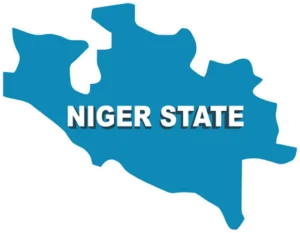2023 general elections: Demand for preparation is much in view
To have flawless elections in 2023 would rightly demand nothing but earnest preparations in response towards the array of events to shape the course of the democratic process. While deal-days of voting would rightly take course, the process surrounding actual casting of votes is only one among the plethora of activities that sums into an election. It is hence, indisputable that the extension of activities described in it terms as “pre-election” processes hold depths of broad engagements and operations significantly demanding the coordination of administrative preparations to have a record of a free, fair and credible election, which has been the summation of the general attributes of pass mark for elections. Hence, as a continuum that culminates in announcement of results and settlement of all processes resulting from disputed outcomes, giving premium preparation to the demands are pertinent.
With the volatility of the pre-election activities and the technicalities of the administration of the management of the processes, the coordination of administrative affairs of voting processes and collations, as well as the complications of post election disputes, only vibrant formation of structural frameworks would be required to have a flawless process. Hence, the necessity for preparation becomes sine qua non.
It is no doubt that the role of all organs of government remain sacrosanct within their sphere of responsibility. The need for each to coordinate activities towards this end has become non negotiable. For the National Assembly, its statutory role would be seen to be more of the resounding necessity in the pre-election schedules of oversight and ratification functions, as well as in legislative demands. This has partly played in the recent disputed 2021 Electoral Act Amendment Bill which was recently passed by the parliament. Addressing the technicalities of the contested clauses are processes demanding the fixture of perceived lacunae to have a reliable system. Hence, addressing such matters perceived to be potent sources capable of disrupting the processes are indeed an example of how it is expedient for the table to be cleared to have a clean sheet as legal frameworks upon which to structure the running of the elections.
On its part, the role of the judiciary would no doubt be left out. Such roles in determining deep seated pre-election legal disputes remain significant, just as determining post election disputes would not be out of case. Preparations in this regard remain a case in point. From the executive, which bears a burden of implementation of the administrative processes, much appears to be expected. From security to the administration of the voting processes, to effecting of inaugurations, the role of the executive remains profound. Under this architecture, the necessity for all relevant agencies including the security and electoral governing institutions to assume their role remains sacrosanct.
As the electoral body saddled with the responsibility of the administrative governance of elections in the Country, the role of the Independent National Electoral Commission (INEC) is of central focus. The need for the Commision to further strengthen commitment to the build-up towards the elections is paramount. It is known that in the coming days, pressures from political campaigns and primary elections, among other technicalities, would significantly begin to place pressure on the Commission. This is just as several other strains posing challenges would have their claws of limitations. It would be recalled that the Commission had on Monday expressed worries over the challenges that insecurity may pose if not addressed. The INEC National Commissioner, Information and Voter Education, Barr. Festus Okoye at the opening ceremony of a two-day workshop for the Commission’s staff of Voter Education and Publicity including the heads of Departments and Publicity Affairs Officers from the Northern States on Strategic Communications and Operationalization of the Communication Policy facilitated by the European Centre for Electoral Support (ECES-Nigeria), had said: “As we move closer to the 2023 general election, all the critical stakeholders and the security agencies must resolve to degrade and or neutralise the security threats across the federation. Our people must be assured that they can vote in a peaceful atmosphere. The Chairman of the Commission has pointed out and consistently emphasized that the current level of insecurity in the country remains the greatest and most potent threat to the conduct of free, fair, and transparent elections in the country.”
Apart from security, it is widely known that other activities surrounding election are of deep concern. The need for enlightenment, sensitisation and broad engagement is sacrosanct for the Commission to emphasise upon. Such is needed from all ends – including those required for citizens, as well as those essential for political parties. This is just as it is pertinent for the Commision to live up to expectation in the regulation of conducts as it is empowered to do. More importantly, fortifying its personnel base to handle the affairs of the processes is sacrosanct.
Commenting on such subjects bearing relevance to the regulation of conducts, Okoye, had on Monday, said: “Political parties are reminded that they must conduct valid primaries, in the venue chosen by them and communicated to the Commission. The primaries must take place in the constituency where the election will take place and on the day indicated in their letter to the Commission and using the mode of primaries voluntarily chosen by them. Those that engage in ‘trucking,’ ‘storage’ of Permanent Voters Cards and corruption of the electoral process must realize that the Commission has a robust cleanup process that detects multiple and double registrants. Double or multiple registrations whether innocently done or not is a violation of the law that attracts sanctions.”
On personnel control mechanisms, Okoye who urged the VEPs and POAs to embark on aggressive campaigns against multiple and double Continuous Voter Registration Exercise, had said: “As Heads of Department and Public Affairs Officers, you must assist in educating Nigerians on the importance of the ongoing Continuous Voter Registration Exercise. You must carry out an aggressive and sustained campaign against multiple and double registration. As a Commission, we must design measures and strategies to halt the dangerous descent to double and multiple registrations going on in most states of the Federation.”
It would be assertive to state that all relevant bodies holding bearing to the conduct of elections in the Country are indebted to ensure a free, fair, and credible process. While the demands may be by degree in time and commitments, it is expected that all stakeholders work assiduously to establish a notable record of an ideal general elections in 2023.




